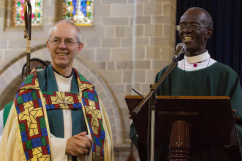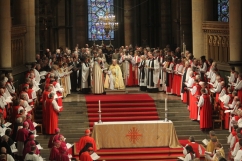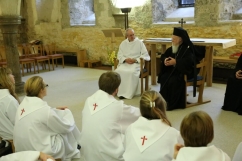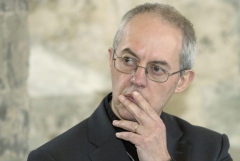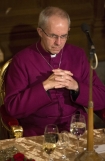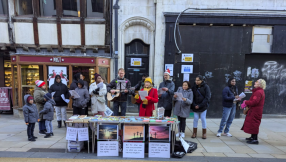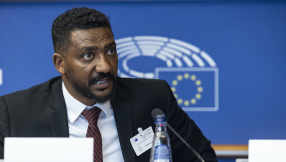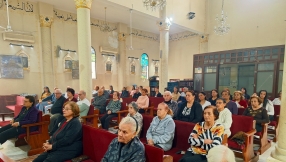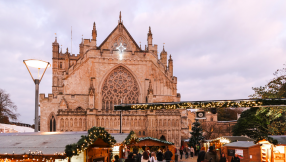The Archbishop of Canterbury yesterday painted a stark and gloomy picture of a Church struggling to survive in the face of sin, corruption, Islam and an increasingy secular, anti-Christian culture in the West.
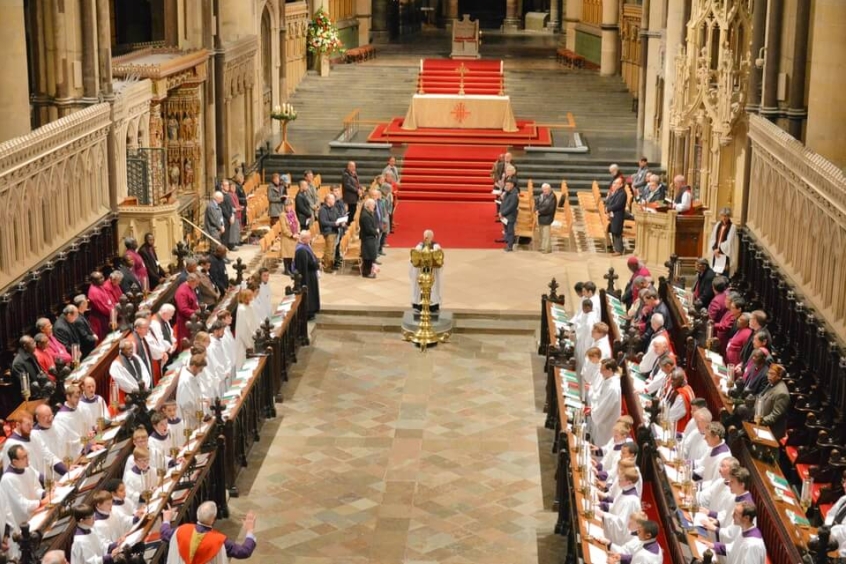
The Anglican voice is increasingly needed in a world where religious war is spreading, and the secular world has no answer to it and does not even understand the nature of religion, Archbishop Justin Welby said in his opening address to his 38 fellow Primates meeting in Canterbury.
He also spoke frankly about Islam.
"Islam is engaged in more and more violent activity in its civil war. Its violent arms subvert, attack, kill and destroy without mercy or conscience, as Christians did during the reformation. Islam's mainstream leaders, at peace but much menaced, look for friends, how do we respond?"
Welby also said that climate change is another huge danger, noting that many of the 38 Anglican Communion provinces represented at the Primates Meeting at Canterbury are in parts of the world that "are literally drowning".
The Archbishop's address was leaked from the private meeting. It was not published officially by the Primates 2016 website or the Archbishop's office. Although his office declined to comment, there was no denial that he had delivered the speech.
The speech was, at times, almost desperate.
He revealed that new figures to be published this week will show further numerical decline in the Church of Engand and admitted that the Church's success in gaining an exemption from same-sex marriage law had cost it dear, although he presented that success as a victory against the prevailing winds of secular culture.
The feared walk-outs by some of the conservative Global South Primates had not materialised by the end of the first day.
Archbishop Welby said there had always been tensions. "The first Lambeth Conference, boycotted by the Archbishop of York and many English Bishops, was over a question of heresy. Divorce, contraception, the ordination of women, all caused deep fractures, and were seen as doctrinal, not only moral, issues. The reality is that a Church such as the Anglican Communion is such a mixture of histories, and of theological difference, that inevitably there will be deep differences and from time to time these will lead to grave crises, such as the one faced in recent years."
He also revealed his own faith was rooted in African Christianity, as an 18-year-old teaching at Kiburu Secondary school in Kenya. "That same 18-year-old then had the seed of the gospel sown into the ground prepared, when three Ugandan Bishops, led by Festo Kivengere came to England in 1975. And a few weeks later I gave my life to Christ. So for me it was indigenous Kenyan and Ugandan faith, through the Revival's legacy, that brought me salvation. I do not forget that."
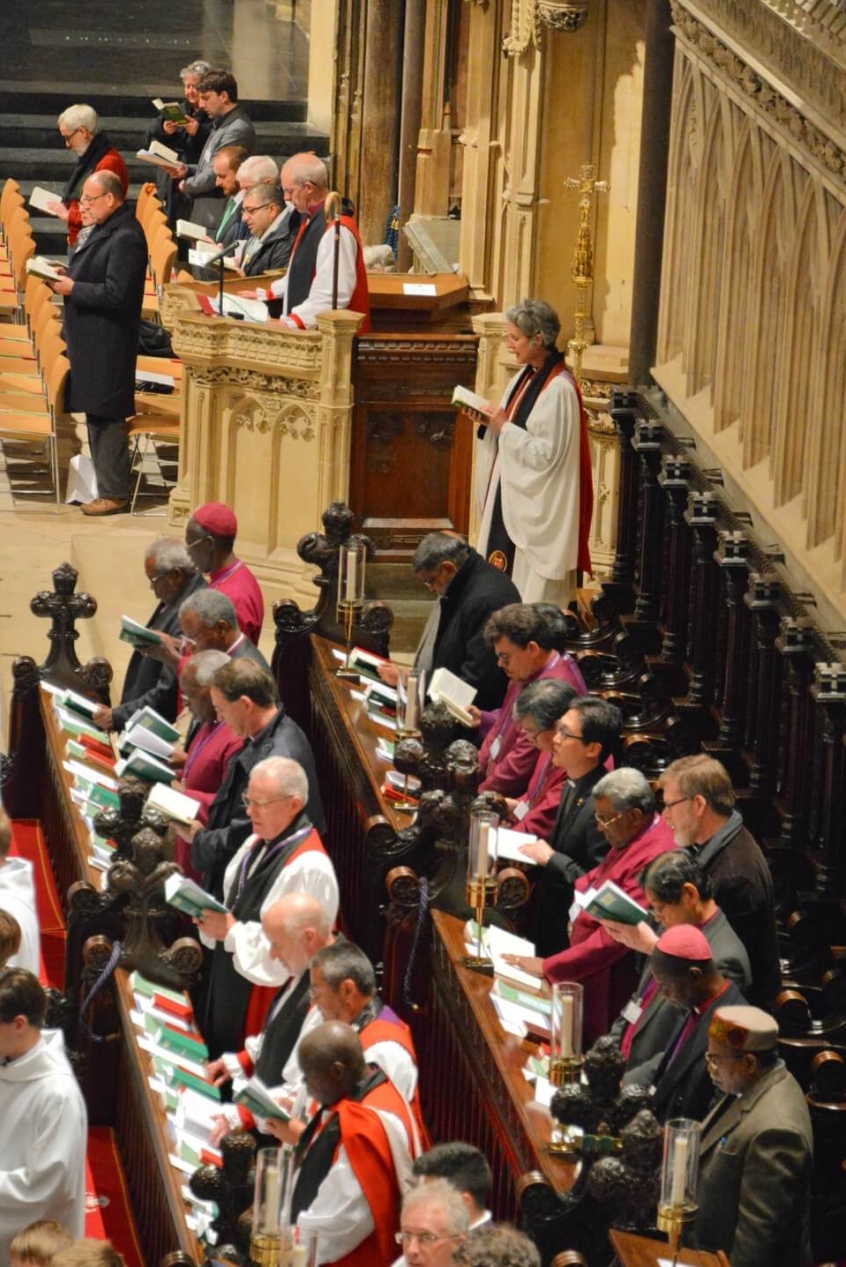
Noting that it is more than 1,000 years since the Great Schism separated Western and Eastern churches, Welby said divisions are not normal, but are "an obscenity" because they are "a denial of Christ's call".
There is much reason for concern around the Anglican Communion," he added. India in particular needs "the truth of Christ" as wealth and poverty become more extreme, he said.
"In the churches represented in this room there are a high proportion, perhaps half, who are deeply affected by conflict, persecution or both. Others are suffering from extremes of poverty and injustice, and others from climate change.
"In some parts of the Communion decline in numbers has been a pattern for many years. In England our numbers have been falling at about one per cent every year since World War II. This week will see the publication of the figures for 2014, continuing that pattern, made to look a little worse by a change in the way we count people. The culture has becoming [sic] anti-Christian, whether it is on matters of sexual morality, or the care for people at the beginning or the end of life. It is easy to paint a very gloomy picture."
In a particularly gloomy passage of his address, he said not one of the 38 provinces is without sin and each one has some form of "corruption"
The Archbishop said: "There is litigation, the use of civil courts for church matters in some places. Sexual morality divides us over same-sex issues, where we are seen as either compromising or homophobic. The list can go on and on."
For all that there is good news, however, and around the world the Church is growing, evangelising and leading people to life in Christ.
The Church of England is itself "a major part of the glue that holds society together", Welby added, such as in education and tackling poverty. "A recent attempt to introduce assisted suicide was crushingly defeated in Parliament. We are exempted from the same-sex marriage act, showing that our voice is still heard against the prevailing wind of our society, and at much cost to ourselves, by the way."
"The Church of England is still a primary source of leadership for communities, to the dismay of the secularists. It is a struggle, but we are not losing. And we are also in the middle of the biggest reform of the Church since the mid 19th century. We are planting churches. The Archbishop of York is on an evangelistic pilgrimage, I imagine the first Archbishop of York to do that in centuries, even perhaps over 1,000 years. And the Bench of Bishops is described by the longer standing members as the most orthodox since World War II.
"Around the world it is Anglicans who serve Christ in every possible way, supporting one another in bringing peace, in defending the oppressed, in education and health, and who are active in evangelism, bringing salvation to the lost. Diocesan partnerships are often strong, and mutually beneficial. We must not despair, because for all our faults God is at work by His Spirit, and we are in the end those who are sent by Jesus as the Father sent Him."
Welby concluded by pleading the case for unity.
"Without each other we are deeply weakened, because we have a mission that is only sustainable when we conform to the image of Christ, which is first to love one another," he said.










